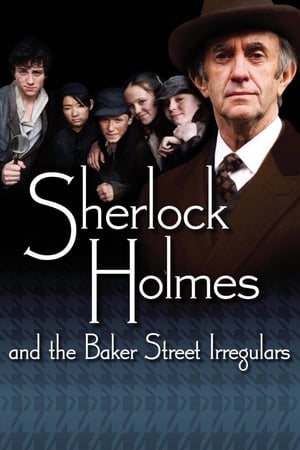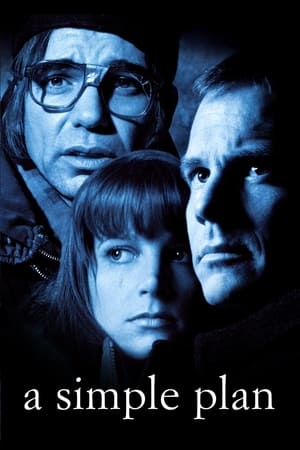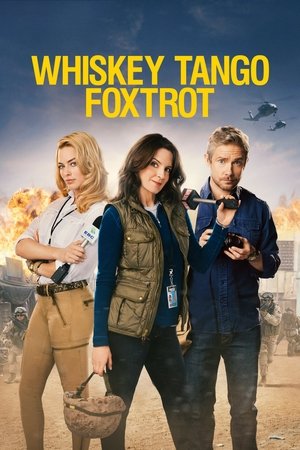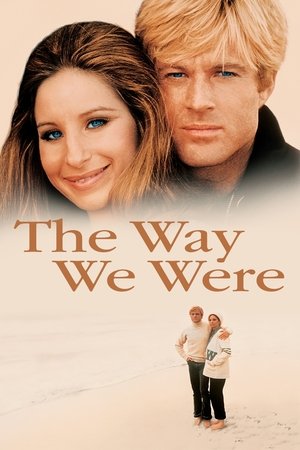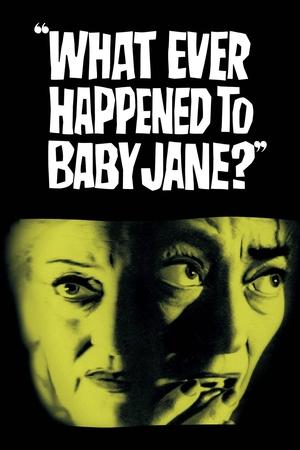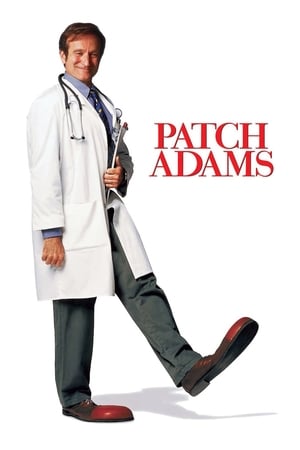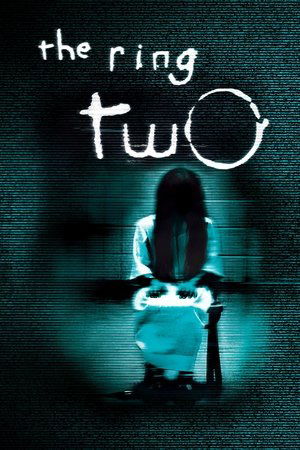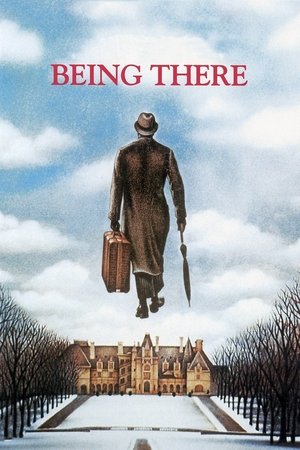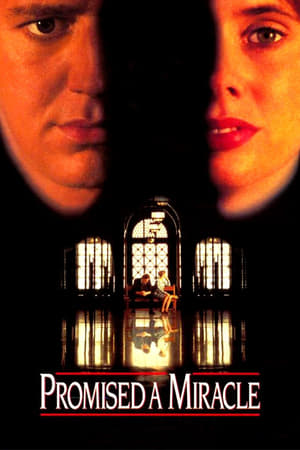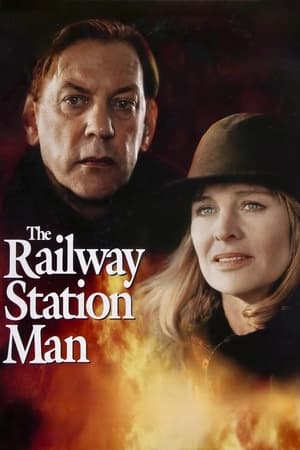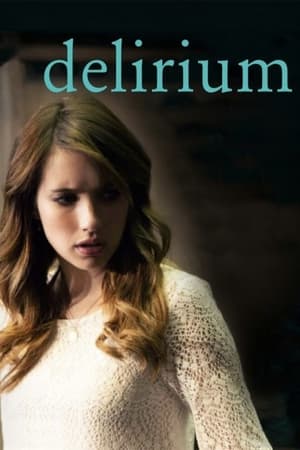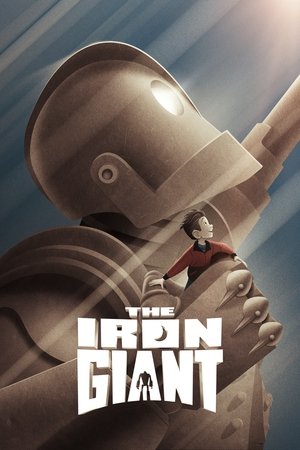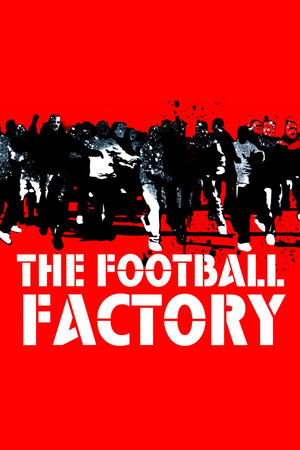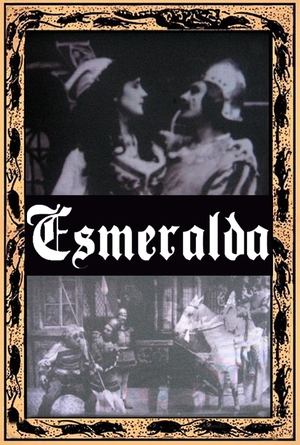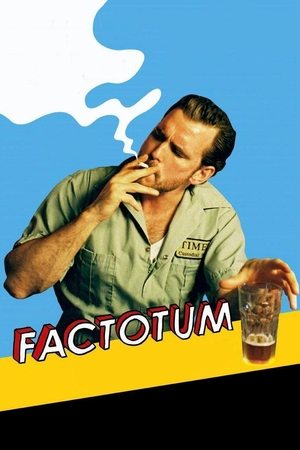Overview
In an attempt to flee Nazi-occupied France, Georg assumes the identity of a dead author but soon finds himself stuck in Marseilles, where he falls in love with Maria, a young woman searching for her missing husband.
Reviews
**_Built upon a fascinating temporal/cognitive dissonance that works well, but the narrative is painfully dull and the characters taciturn_**
> _The tradition of the oppressed teaches us that the 'state of emergency' in which we live is not the exception but the rule. We must attain to a conception of history that is in keeping with this insight. Then we shall clearly realise that it is our task to bring about a real state of emergency, and this will improve our position in the struggle against fascism._
- Walter Benjamin; "Über den Begriff der Geschichte" ["Theses on the Philosophy of History"] (1940)
> _You know the fairy tale about the man who died, don't you? He was waiting in Eternity to find out what the Lord had decided to do with him. He waited and waited, for one year, ten years, a hundred years. He begged and pleaded for a decision. Finally he couldn't bear the waiting any longer. Then they said to him: 'What do you think you're waiting for? You've been in Hell for a long time already._
- Anna Seghers; _Transit_ (1944)
> _Being a refugee is much more than a political status. It is the most pervasive kind of cruelty that can be exercised against a human being. By depriving a person of all forms of security, the most basic requirements of a normal life, by cruelly placing that person in inhospitable host countries that do not want to receive this refugee, you are forcibly robbing this human being of all aspects that would make life, not just tolerable, but meaningful in many ways._
- Ai Weiwei; _Human Flow_ (2017)
_Transit_ is based on Anna Segher's 1944 novel of the same name about a German concentration camp survivor seeking passage from Vichy Marseilles to North Africa in 1940, as the Nazis move ever closer to the city. However, rather than a 1:1 adaptation, the film is built upon a fascinating structural conceit – although it tells the same story as Segher's novel, it is set in the here and now. At least, some elements are set in the here and now. In fact, only part of the film's _milieu_ is modern. So, although such things as cars, ships, weaponry, and police uniforms are all contemporary, there are no mobile phones, no computers, people still use typewriters and send letters, and the clothes worn by the characters are the same as would have been worn at the time. Think of it this way – we've all seen modern dress productions of Shakespeare (from Barry Jackson's introduction of the concept in the 1923 Birmingham Reparatory Theatre production of _Cymbeline_ to Orson Welles's 1937 Mercury Theatre production of _Julius Caesar_, on up to films such as Richard Loncraine's 1995 adaptation of _Richard III_ and Baz Luhrmann's 1996 adaptation of _Romeo and Juliet_). So it would be like a Shakespeare production in which everyone is wearing modern dress, but they're still fighting with swords. In essence, what this means is that the film is set neither entirely in 1940 nor entirely in 2019, but in a strange kind of temporal halfway-house, borrowing elements from each.
There's a fairly obvious reason that writer/director Christian Petzold (_Yella_; _Barbara_; _Phoenix_) employs this strategy, and it has to be said, it works exceptionally well, with the film's thematic focus symbiotically intertwined with its aesthetic to a highly unusual degree. In this sense, although the film ostensibly tells a story about 1940s Europe, its focus on refugees and its pseudo-modern setting mean that it also acts as something of a "state of the nation" address for Europe in 2019. In particular, it speculates as to what could happen in the not too distant future, given the rise of militant anti-immigration rhetoric and neo-fascist political ideology. The film doesn't so much suggest that history is repeating itself, as postulate that there's no historical difference between then and now. Unfortunately, aside from this daring aesthetic gambit, not much else worked for me, with the plot painfully somnolent and the characters void of virtually any relatable emotion.
The film begins in Paris, as Georg (Franz Rogowski) is entrusted with delivering some papers to George Weidel, a famous communist author currently in the city. After narrowly avoiding arrest, Georg makes his way to Weidel's hotel room but finds the writer has committed suicide. Taking an unpublished manuscript, two letters from Weidel to his wife Marie, and Weidel's transit visa for passage to Mexico, Georg and his companion Heinz (Ronald Kukulies) stowaway on a train heading for Marseilles, one of the few European ports not yet under the control of the "fascists", and where the hotels will only accept guests who can prove they will soon be leaving (i.e. people who already have transit visas for passage to another country). _En route_, Heinz dies from an infection, and upon arriving in Marseilles, Georg visits Heinz's Moroccan wife, Melissa (Maryam Zaree), to break the news. However, when he discovers that she's deaf, he has to explain Heinz's death through her young son, Driss (Lilien Batman), with whom he quickly forms a bond. Meanwhile, he heads to the Mexican consulate intending to return Weidel's belongings in the hopes they may get to his wife. However, when he is mistaken for Weidel himself, he realises he has a chance to escape Europe, with Weidel booked on a ship sailing in a few days. As Georg awaits passage, he has several encounters with a mysterious woman, who, it is soon revealed is none other than Marie Weidel (Paula Beer), who is waiting for word from her husband. Not telling her that Weidel is dead, Georg finds himself falling for her, and begins to contemplate the new life he believes they can make together. However, things become more complicated when Driss takes ill and is tended to by local doctor, Richard (Godehard Giese), himself a refugee who is currently in a relationship with Marie and is desperate to flee with her so as to begin work in a children's hospital in Mexico. Weidel's transit visa, however, is for only two people.
With a _milieu_ that is authentic to neither the 1940s nor the 2010s, _Transit_ is _Casablanca_ filtered through Franz Kafka; it's what you might imagine if Sam (Dooley Wilson) played a polyphonic synthesizer, but Rick Blain (Humphrey Bogart) was still a Spanish Civil War veteran. Shot on location in Paris and Marseilles, everything from street signs to cars (including a few electric ones) to the front of buildings is modern, whilst Hans Fromm's crisp digital photography hasn't been aged in any way whatsoever (people who had a problem with Michael Mann shooting _Public Enemies_ (2009) on digital will be especially unimpressed).
In terms of cultural signifiers, Petzold keeps it fairly vague, although there is a reference to, of all things, George A. Romero's _Dawn of the Dead_ (1978), whilst the closing credits are scored by Talking Heads' "Road to Nowhere" (1982). Aside from that, Petzold avoids the minefield of choosing which cultural artefacts to include and which to leave out. However, for everything that seems to locate the film in the 21st century, there's something which seems to locate it in the 1940s, whether it be the absence of mobile phones, computers, and the internet, the ubiquity of typewriters and letters, or the clothes worn by the characters (except the police, who are dressed in modern riot gear). Along the same lines, Petzold keeps the politics generalised, with no mention of Nazis, concentration camps, or the Holocaust (indeed, it is never fully established why Georg himself is fleeing, although one assumes it's because he's a Jew). Instead of these specifics, the film makes references to archetypal "fascists", never-defined "camps", and systemic "cleansing". As an aside, the fact that so many of the refugees are trying to reach Mexico carries its own political undercurrent, with Mexican immigration to the US such a hot-button topic at the moment. In this sense, the film's racially motivated raids, importance of documentation, and inhumane detention conditions allude to 2019 as much as they recall 1940.
The combination of liminal elements of modernity and period-specific history sets up a temporal/cognitive dissonance which places the narrative somewhere between fact and allegory, as if it were inverted magic realism. This, in effect, forces the audience to move beyond the abstract notion that what once happened could happen again. Instead, we are made to recognise that the difference between past and present is an unimportant semantic distinction only, and that that which once happened never really stopped happening; political displacement today is, for all intents and purposes, just as it was in 1940. Indeed, given the resurgence of Neo-Fascism across Europe, built primarily on irrational xenophobic fears of the Other in the form of immigration, the refugee crisis could very well become a global crisis (some would argue it already is), with Transit attempting to serve as a wake-up call. Along the same lines, the film's temporal dislocation suggests both the specificity and the universality of the refugee experience – every refugee is fundamentally unique, but so too is the experience the same, irrespective of when or where it happens. The important point here is that Petzold was able to lift a story from 1940 and place it in a relatively modern _milieu_ without changing much. The fact that conditions in 1940 can so easily slot into 2019 speaks to his central theme – nothing has changed for refugees.
The other important aesthetic choice is the use of a very unusual voiceover narration. Introduced out of the blue as Georg begins reading Weidel's manuscript at around the 20-minute mark, there's no initial indication as to the narrator's identity or when the narration is taking place. Additionally, the narrator is unreliable, as on occasion he describes something differently to how we see it. At the same time, the voice seems to alternate between omniscience and rigid subjectivity; at times, he speaks about something beyond Georg's perception (Georg is the focaliser throughout the entire film), at other times he describes Georg's innermost thoughts. The narration also "interacts" with the dialogue at one point – in a scene between Georg and Marie, their dialogue alternates with the VO; they get one part of a sentence and the VO completes it, or vice versa.
However, although I really liked the temporal dissonance, the experimental VO didn't work nearly as well, serving primarily to smother the characters. The sudden introduction and the alternating range of the narrator's perceptions serves only to pull you out of the film as you try to answer a myriad of questions - where and when is the voice is coming from; what is its relationship to the narrative; are we hearing a character speak or someone outside the _fabula_; how can the narrator have access to Georg's innermost thoughts at some points but not at others; why is the voice able to accurately describe things not seen by Georg, but often inaccurately describe things which are; why does the narration seem to be ahead of the narrative at some points, behind it at others; what is the purpose of the pseudo-break of the fourth wall by having the VO alternate with dialogue? I certainly don't have answers to all of these questions, but I think the point of the destabilising/defamiliarising narration is to reinforce the importance of storytelling – the experience of being a refugee is not lineal or ordered, but a mass of stories within stories and fragments that often contradict one another.
Thematically, Petzold has always been interested in issues of identity, political disenfranchisement, people desperate to leave somewhere, and ghosts (sometimes literal, sometimes existential), and _Transit_ is no exception. Weidel figuratively haunts the entire narrative, whilst Georg and the refugees, in general, exist as pseudo-ghosts, haunting Marseille until they can leave. However, this focus on ghosts also highlights several of the film's failings.
To suggest the disenfranchised nature of what it is to be a refugee, Petzold depicts Georg as essentially a non-person; he has very little agency of his own and is instead someone to whom things happen. In short, he's passive, less a protagonist than a witness. Passive characters can work extremely well in the right circumstances (think of Luke Skywalker (Mark Hamill) in the first act of George Lucas's _Star Wars_, Chance Gardner (Peter Sellers) in Hal Ashby's _Being There_, or the most famous example, Hamlet), but here, passivity combines with a dearth of backstory and character development, whilst Rogowski plays the part without a hint of interiority. In essence, we see Georg wandering around Marseille a lot...like really a lot. And we don't see him doing a huge amount else. Easily the most successful scenes in the film are those showing his friendship with Driss because they're the only moments where he seems like a person rather than a narrative construct, they're the only parts of the film that ring emotionally true.
That this is so is a serious problem, as the friendship is very much a subplot, and is secondary to the love story between Georg and Marie. Except that it isn't a love story; there's no emotional realism to it whatsoever, with the two characters becoming involved for no reason other than it said they had to in the script. I do understand what Petzold is going for here. He doesn't want a Hollywood love story of fireworks and poetic monologues, he wants to show that the war and their status as refugees has stripped them of their identities, and they are now effectively shells. However, this in no way necessitates such a badly written relationship void of any and all emotional truth.
What Petzold is trying to do in his characterisation of Georg is clear enough; as an archetypal refugee, Georg can't be seen to have much control over his affairs as that would betray the actual experiences of real refugees. In this sense, his time in Marseille _must_ be static, an existence in-between more fully realised states. Petzold uses this to try to imply that to be divested of one's country is to be divested of one's identity. So, my criticism that Georg is a non-person is very much built into the film's DNA. Am I criticising the film for doing what it set out to do, and for doing it exceptionally well? Not really. I understand that Georg must be passive. However, the extent of his passivity renders him completely unrealistic – he's not a person, he's a robot, and the Georg at the end of the film is the same character as he is at the start.
Tied to this is the lack of forward narrative momentum. Again, I understand that Petzold is trying to stay true to the experience, that the life of a refugee in a place like Marseille in 1940 must necessarily involve a lot of waiting, a lot of repetition, and a lot of frustration. But again, it's the extent to which the film goes to suggest this, with entire sections going by without anything resembling a dramatic event. Yes, inertia is part of the theme insofar as the film depicts people suffering from crippling inertia, but it doesn't necessarily follow that the film needs to be so unrelentingly dull and uneventful.
Easily the most egregious problem is one that arises from a combination of these issues – it's impossible to care about any of the characters. Think of films as varied as Markus Imhoof's _Das Boot ist voll_ (1980), Terry George's _Hotel Rwanda_ (2004), or Aki Kaurismäki's _Le Havre_ (2011) and _Toivon tuolla puolen_ (2017). All depict refugees from various conflicts at various stages of their journeys, and all ring true emotionally, because they are populated by characters about whom we come to care. This is precisely what _Transit_ is lacking. There is simply no pathos, with none of the characters coming across as anything but a cipher, a representative archetype onto which Petzold can project his thematic concerns. With little in the way of psychological verisimilitude or interiority, they simply never come alive as real people.
An intellectual film rather than an emotional one, _Transit_ is cold and distant and has a hugely unimportant and out-of-place voiceover narration (although to be fair, the VO is the only thing which allows us access to Georg's feelings). And this coldness and distance has a cumulative effect, with the film eventually outlasting my patience. The temporal dissonance works extremely well, but it's really all the film has going for it. Petzold says some interesting things regarding the experience of refugees in the 21st century _vis-à-vis_ refugees of World War II, and the mirror he holds up to our society, showing us how such people are treated, isn't especially flattering. If only we could care about someone on screen. Anyone.

 102 min
102 min
 6.713
6.713
 2018
2018
 France
France
 Stephen Campbell wrote:
Stephen Campbell wrote: